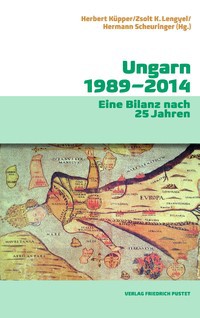On 25 January 2018, the Eastern Partnership Civil Society Forum published the fifth edition of the Eastern Partnership Index. The Index is a set of individual and composite indicators which measure the extent to which the six Eastern European neighbour countries of the European Union have established sustainable democratic institutions and made progress towards closer integration with the EU.
 In the methodology suggested by me, “integration” is conceived as a core and multi-dimensional concept that consists of converging norms, growing economic exchange, deeper transnational networks linking up societies, and more frequent contacts between people. This broad notion of integration implies that EU membership or association may be aims, stages or final states of the integration process. However, it is not limited to a measure of harmonisation with EU norms and standards, but also reflects actual societal, economic and political change. The levels of contractual relations between the Eastern Partnership states and the EU are viewed as elements of a much broader process that is, as a whole, not driven or controlled solely by governments and intergovernmental negotiations.
In the methodology suggested by me, “integration” is conceived as a core and multi-dimensional concept that consists of converging norms, growing economic exchange, deeper transnational networks linking up societies, and more frequent contacts between people. This broad notion of integration implies that EU membership or association may be aims, stages or final states of the integration process. However, it is not limited to a measure of harmonisation with EU norms and standards, but also reflects actual societal, economic and political change. The levels of contractual relations between the Eastern Partnership states and the EU are viewed as elements of a much broader process that is, as a whole, not driven or controlled solely by governments and intergovernmental negotiations.


 The dissolution of the Soviet Union at the end of 1991 marked the collapse of a state, of an empire, and of a project of an alternative modernity. Initially, the collapse of the “Soviet civilization” seemed to provide an opportunity for the countries of the CEE and Eurasia to arrive in the West with its capitalist democracies, its liberal individualist values, and a global pax americana. History as a struggle between ideologies appeared to have reached its (liberal) end. This was an error of judgement, however. Since then, new, non-Western powers and global threats have emerged, and the historico-political region “Eastern Europe” has disappeared. Today, this region is more diverse than any other region in the world: while most of the countries of Central and Southeast Europe adapt successfully to the liberal standards of the West and are now members of the European Union, the post-Soviet states have embarked on a search for alternatives. Here, we encounter authoritarian and semi-authoritarian regimes and state-run capitalist economies, new regional cooperation and security alliances, as well as attempts to develop local models or to learn from other non-Western experiences, especially from China and the Asian “tigers”.
The dissolution of the Soviet Union at the end of 1991 marked the collapse of a state, of an empire, and of a project of an alternative modernity. Initially, the collapse of the “Soviet civilization” seemed to provide an opportunity for the countries of the CEE and Eurasia to arrive in the West with its capitalist democracies, its liberal individualist values, and a global pax americana. History as a struggle between ideologies appeared to have reached its (liberal) end. This was an error of judgement, however. Since then, new, non-Western powers and global threats have emerged, and the historico-political region “Eastern Europe” has disappeared. Today, this region is more diverse than any other region in the world: while most of the countries of Central and Southeast Europe adapt successfully to the liberal standards of the West and are now members of the European Union, the post-Soviet states have embarked on a search for alternatives. Here, we encounter authoritarian and semi-authoritarian regimes and state-run capitalist economies, new regional cooperation and security alliances, as well as attempts to develop local models or to learn from other non-Western experiences, especially from China and the Asian “tigers”.